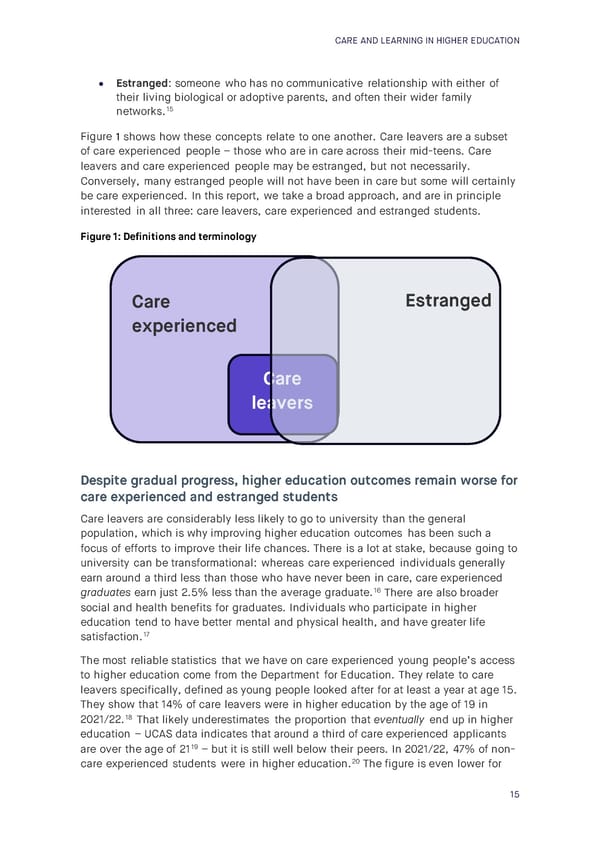CARE AND LEARNING IN HIGHER EDUCATION • Estranged: someone who has no communicative relationship with either of their living biological or adoptive parents, and often their wider family networks.15 Figure 1 shows how these concepts relate to one another. Care leavers are a subset of care experienced people – those who are in care across their mid-teens. Care leavers and care experienced people may be estranged, but not necessarily. Conversely, many estranged people will not have been in care but some will certainly be care experienced. In this report, we take a broad approach, and are in principle interested in all three: care leavers, care experienced and estranged students. Figure 1: Definitions and terminology Care Estranged experienced Care leavers Despite gradual progress, higher education outcomes remain worse for care experienced and estranged students Care leavers are considerably less likely to go to university than the general population, which is why improving higher education outcomes has been such a focus of efforts to improve their life chances. There is a lot at stake, because going to university can be transformational: whereas care experienced individuals generally earn around a third less than those who have never been in care, care experienced graduates earn just 2.5% less than the average graduate.16 There are also broader social and health benefits for graduates. Individuals who participate in higher education tend to have better mental and physical health, and have greater life satisfaction.17 The most reliable statistics that we have on care experienced young people’s access to higher education come from the Department for Education. They relate to care leavers specifically, defined as young people looked after for at least a year at age 15. They show that 14% of care leavers were in higher education by the age of 19 in 2021/22.18 That likely underestimates the proportion that eventually end up in higher education – UCAS data indicates that around a third of care experienced applicants are over the age of 2119 – but it is still well below their peers. In 2021/22, 47% of non- care experienced students were in higher education.20 The figure is even lower for 15
 Care and Learning in Higher Education Page 15 Page 17
Care and Learning in Higher Education Page 15 Page 17